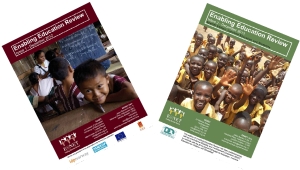“So do you fancy being part of the editing team?”
This was the question I was asked when I joined the EENET team as a volunteer in 2011. I had no idea, in a good way, what I was letting myself in for. Two-and-a-half years later, as Network Coordinator, I am thoroughly enjoying the email conversations I get to have with network members, the letters and cards that arrive in the post, and of course co-editing the articles submitted for the website and the Enabling Education Review.
There are many levels and stakeholders involved in ensuring that educational experiences are inclusive. Stakeholders range from practitioners, such as teachers and community workers on the ground, to those involved in developing policies for education and teacher training. We aim to reflect all of this in the articles we publish in the Review and on the EENET website.
In order to publish as many of your articles as possible in the Review we need to keep them short. However, as I know from experience, writing a 550 or 1100 word article can be really difficult! How do you keep to the word limit while ensuring that all the important elements are included? That’s why editing articles is something that we provide help with.
We are looking forward to reading all of the submissions again this year and discovering the range of issues you are working on. The theme for this year’s Review is Inclusive Education – Beyond Schools. To find out more, read the Call for Articles. If you are not sure whether your work fits within the theme, or you are not sure what to include in your article, email me (info@eenet.org.uk) and we can discuss it.
If you need a reason why it is important to submit articles about your inclusive education work to EENET, read on.
We know from the number of hits on our website, and the emails I receive, that lots of people gain from the inclusive education ideas we share. For example, I recently received a lovely email detailing how useful EENET’s publication, Researching our Experience (based on action research in Zambia), has been for people facilitating workshops and teacher education sessions in India. Although the cultures and contexts are very different, many of the ideas cross over and the activities described in Zambia can be adapted for use elsewhere.
Sharing experiences and examples of promising practice is an important step in improving the quality of education for marginalised groups and in helping to support teachers, head teachers, community leaders, parents, etc, to develop their own knowledge and practice.
So, why not put pen to paper and have a go at sharing your experiences!
Su Corcoran
Network Coordinator

